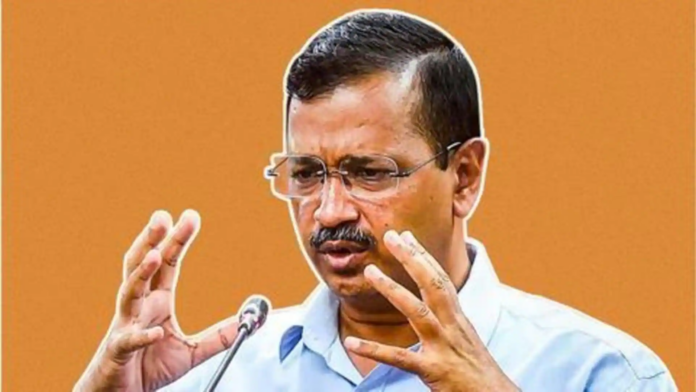The AAP Public Trust Crisis has escalated after Aam Aadmi Party (AAP) councilor Ravindra Solanki openly criticized the Delhi government’s announcement of the Mukhya Mantri Mahila Samman Yojana. The scheme, which proposes raising financial aid from ₹1,000 to ₹2,100, has drawn backlash for failing to deliver on previous promises, leaving citizens disillusioned and questioning the credibility of the government.
Councilor’s Outburst Highlights Discontent
Speaking to the media, Solanki did not hold back in expressing his frustration with the state of governance under AAP. He pointed out that the government had yet to deliver the ₹1,000 allowance promised under earlier schemes.
“A lot of women come to the office asking about the ₹1,000 allowance. So far, no ₹1,000 allowance has been given, and now they are queuing up for the ₹2,100 proposed allowance,” Solanki said, adding, “The public no longer trusts us, and we have no answers for them.”
This rare instance of criticism from within the party underscores growing dissatisfaction among party members and raises concerns about the credibility of AAP’s promises.

Departments Distance Themselves From the Scheme
Further compounding the crisis, the Delhi government’s Women and Child Development and Health departments issued public notices distancing themselves from the scheme.
The Women and Child Development department’s notice stated:
“It is emphasized that since no such scheme is in existence, the question of acceptance of the form/application for registration under this non-existent scheme does not arise. Any private person/political party who is collecting forms/applications or collecting information from applicants in the name of this scheme is committing fraud and has no authority.”
This official denial has left citizens, particularly women, bewildered and angered, as many had already started queuing up for the financial aid announced under the Mahila Samman Yojana.
Public Sentiment and Erosion of Trust
Public reaction to the unfulfilled promises and subsequent announcements has been overwhelmingly critical. Many see this as yet another instance of populist rhetoric failing to materialize into action. Women who were hopeful about receiving financial support now feel betrayed, while others question the integrity of AAP’s governance.
One local resident remarked, “Promises were made to uplift women, but not even the initial ₹1,000 allowance has been fulfilled. How can we believe the next announcement?”
This sentiment reflects the broader erosion of trust in AAP, especially among vulnerable groups that rely on government support.

Political Fallout and Accusations
Adding to the tension, AAP chief Arvind Kejriwal accused the Bharatiya Janata Party (BJP) of orchestrating a campaign to discredit the party. Kejriwal claimed that the BJP was “rattled” by the Mahila Samman Yojana and the promise of free treatment for the elderly.
The Chief Minister warned of potential political vendettas, stating that Delhi Chief Minister Atishi could be arrested in a “fake” case in the coming days. Such accusations highlight the intense political rivalry between AAP and BJP but do little to address the immediate concerns of the public.
Historical Pattern of Unfulfilled Promises
Critics argue that this is not the first time AAP has failed to deliver on its promises. Past schemes aimed at providing financial aid, healthcare, and education reforms have often been met with delays or insufficient execution. Analysts suggest that the pattern of overpromising and underdelivering has started to take a toll on the party’s reputation.
The ₹1,000 allowance under earlier women-centric schemes was hailed as a significant step toward financial empowerment but has turned into a glaring example of broken promises. As public patience wears thin, AAP finds itself in a precarious position ahead of upcoming elections.
Immediate Challenges and the Path Forward
For AAP, the current situation demands urgent damage control. Restoring public trust will require more than just rhetoric—it will need tangible actions that demonstrate accountability and commitment to promises made.
Some immediate steps that could help rebuild confidence include:
- Transparency in Governance: Clear communication about the status of promised schemes and an honest acknowledgment of challenges faced in implementation.
- Accelerated Rollout of Promised Aid: Delivering the ₹1,000 allowance before proposing new schemes to show commitment to fulfilling existing promises.
- Addressing Internal Dissent: Managing criticism from within the party to present a unified and credible front.
- Engaging Public Trust: Holding town halls or public consultations to hear grievances directly and provide reassurances.
Restoring Public Confidence
As the AAP grapples with this trust deficit, the road to redemption lies in prioritizing action over announcements. Promises without follow-through only deepen public cynicism, making it imperative for the party to address past shortcomings before launching new initiatives. Public trust, once lost, is hard to regain, and AAP must act decisively to avoid further alienation of its voter base.

